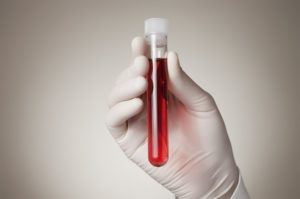A Supreme Court ruling in 2016 stipulated a DWI blood sample could only be taken from a defendant when police obtain a warrant.
However, in Texas an appeals court has ruled a blood sample taken by police without a warrant from a boxer from El Paso is admissible at his trial.
Police say Joel Garcia allegedly drove drunk and killed three people in 2014. A report in the El Paso Times noted he is facing three counts of intoxication manslaughter.
Earlier this year, the case came before the Texas Eighth District Court of Appeals which ruled that a blood sample taken from the boxer was under exigent circumstances. The sample could, therefore, be presented as evidence in his trial.

The appeals court decision reversed the original ruling of a district court judge that would have stopped the sample being used in Garcia’s trial.
The boxer was involved in a wreck that killed Joshua Deal, 23, Shannon Nicole Del Rio, 22, and 19-year-old Isiah Deal on Christmas Eve in 2014.
According to police reports, the three were heading east on Vista del Sol Drive. A Camaro traveling south on Joe Battle Boulevard allegedly ran through a red light, hitting them in the driver’s side door, police said. The Pontiac the Deal brothers and Shannon Del Rio were traveling in burst into flames, killing them.
As well as the intoxication manslaughter charges, Garcia is charged with one count of possession of a controlled substance. The additional charge was reported to be a significant factor in the appeals court’s ruling.
Judge Gonzalo Garcia of the 210th District Court, originally threw out the blood sample evidence in July 2015.
When a DWI Blood Sample Can Violate a Defendant’s Rights
Judge Garcia said the DWI blood sample against the boxer taken by El Paso police was inadmissible. He also scolded officers for their conduct in the investigation of the wreck.
Garcia refused to provide a sample of his blood after his arrest, police documents stated. Police instructed staff at the medical center where Garcia was being treated for injuries, to obtain a sample of his blood before they obtained a search warrant. Officers claimed medical staff took the blood sample because the boxer was about to receive medications that could change his blood/chemistry, the arrest affidavit stated.
Judge Garcia agreed with defense counsel that investigators taking Garcia’s blood before they obtained a warrant violated his Fourth Amendment rights.
You have a right to refuse a blood test. As the Supreme Court ruled last year, police should obtain a warrant before carrying out a blood test. However, there are some instances which are ruled exigent circumstances which can include a fatal accident. Find out more about blood tests here on our website.
If you have been charged with a DWI or intoxication manslaughter, it’s important to talk to an experienced Texas criminal defense lawyer. Call us at (512) 399-2311.

